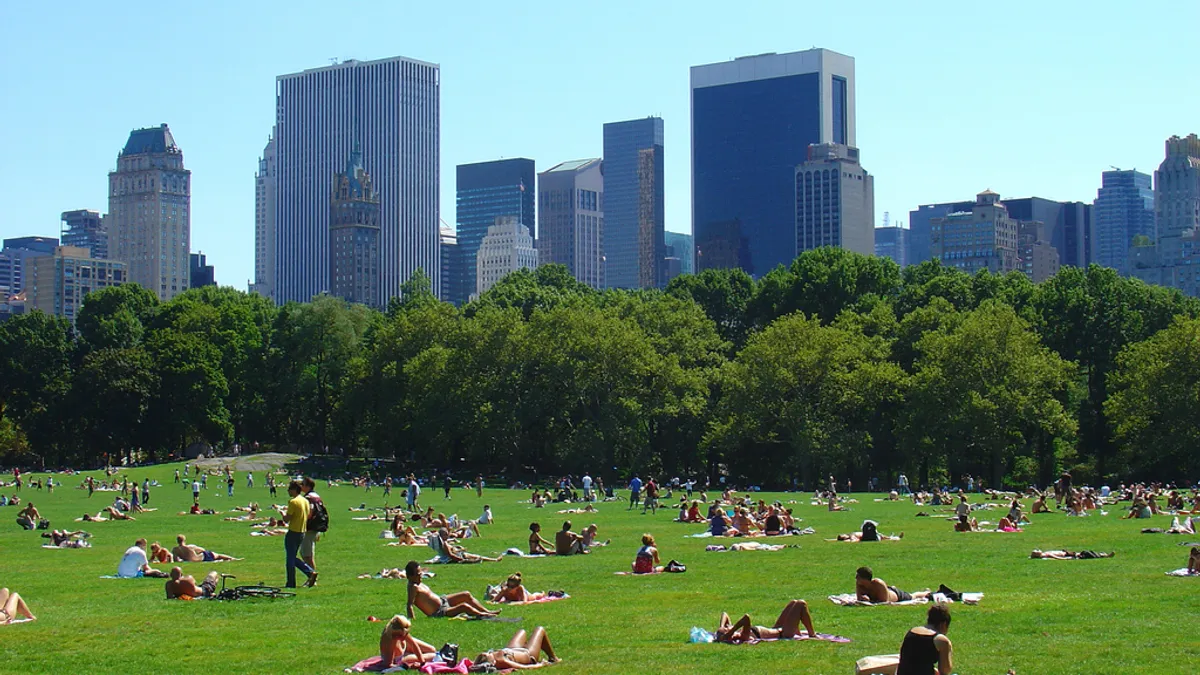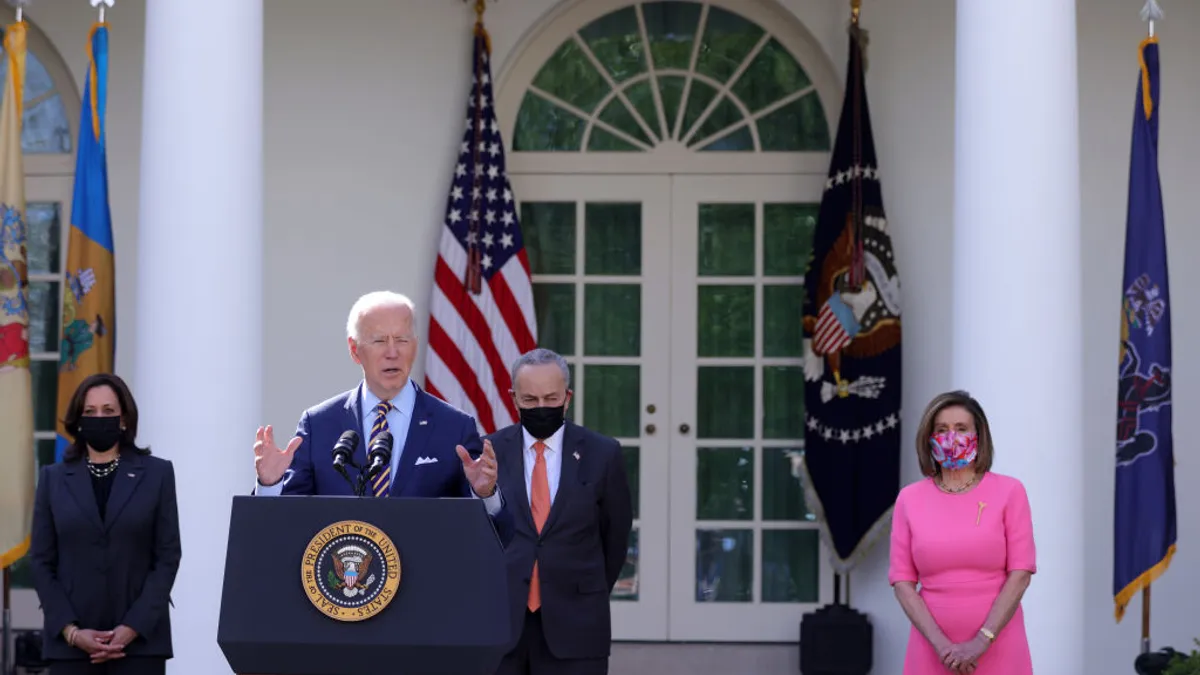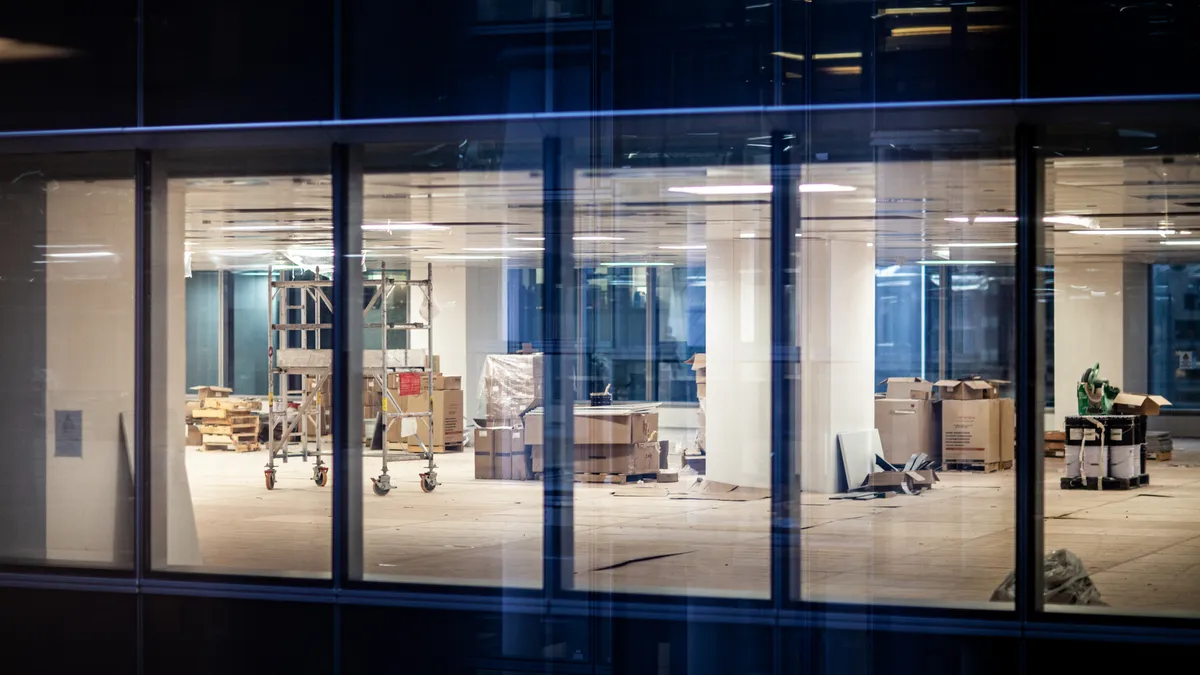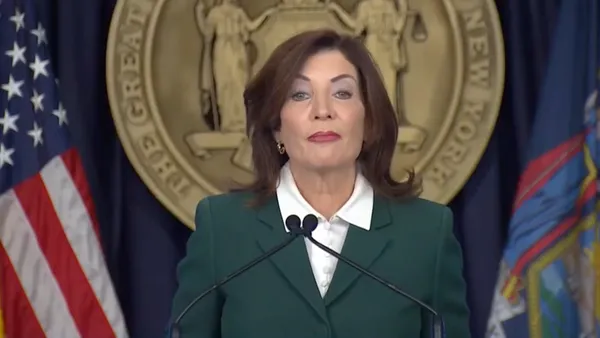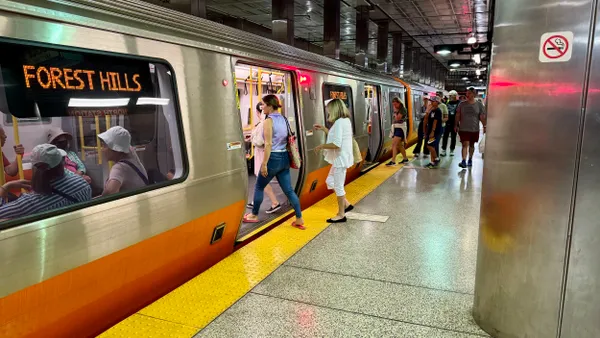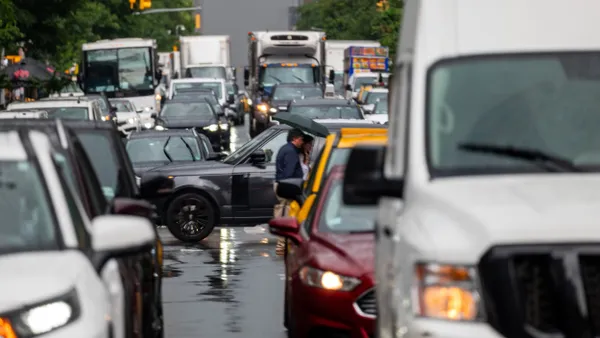UPDATE: June 28, 2018: New York City Mayor Bill de Blasio led officials from his administration on a bike ride Tuesday through Central Park to commemorate the last car driving through. The park went permanently car-free at 7 p.m. on June 26.
"For more than a century, we had turned parts of the world's most iconic park into a highway — and starting tonight, we have officially taken it back for good,” de Blasio said in a statement. “We are prioritizing the safety and the health of the millions of people who flock to Central Park.”
June 27 was chosen as the first car-free day as the first day after the end of class for public schools and the opening of outdoor pools across the city. It will not affect the roadways at 97th, 86th, 79th and 65th Streets, as those are below-grade streets designed to accommodate thru-traffic.
Dive Brief:
- New York City Mayor Bill de Blasio announced, beginning June 27, cars will be banned on Central Park's Center Drive, Terrace Drive, East Drive and West Drive, making the park permanently car-free.
- The move is intended to reduce air pollution and improve safety in the park, where more than 42 million people visit each year for exercise or leisure. The transverse roadways at 65th, 79th, 86th and 97th Streets will not be affected, as they were built into the park's original design.
- "For more than a century, cars have turned parts of the world’s most iconic park into a highway. Today we take it back," de Blasio said in a statement.
Central Park goes car free in June. 24/7, 365 days a year — because parks are for people, not cars. pic.twitter.com/kvRUgIudx1
— Bill de Blasio (@NYCMayor) April 20, 2018
Dive Insight:
This announcement, appropriately released on Earth Day, quickly follows the city's January announcement that Prospect Park is permanently car-free "for the first time since the inception of the automobile." That decision was made following a car-free trial in June 2015 and garnered a significant amount of support, including petitions calling for full-time car-free park hours.
By banning cars in Central Park — one of the most iconic greenspaces in the world — New York is signaling its commitment to maintaining a "much-needed dose of nature," according to City Council Speaker Corey Johnson. While the decision may receive some pushback from travelers who utilize the roads to dodge traffic while cutting across bustling Manhattan, the city's Department of Transportation (DOT) predicts that traffic increases are to be minimal. DOT says it will also monitor the changes to implement any tweaks if necessary.
Curbed NY reports this move supports a large-scale restoration project at Central Park intended to restore the landscapes and structures "that represent the Park's cultural legacy." The decision also falls in line with a number of other commitments the city is prioritizing to address climate change and increase pedestrian safety. De Blasio recently signed a joint letter opposing the repeal of the Obama-era Clean Power Plan, and in early January, NYC announced a $50 million commitment to install security bollards in Times Square and other high-profile sites for pedestrian safety.




